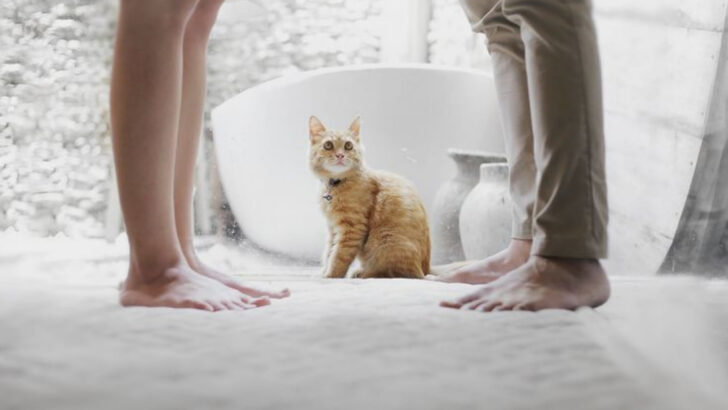Your cat forgives less than you think—and forgets even less. One wrong move, and that fluffy glare might last all day. Or all week. Cats notice everything. And some of your “loving” habits? They might feel like betrayal. It’s not always the big stuff. Sometimes it’s picking them up when they clearly want down. Sometimes it’s bringing home a new pet, or moving their litter box “just a little.” Trust with a cat is fragile. It’s built in slow blinks and quiet moments—and broken in seconds. Let’s uncover 14 everyday things that quietly chip away at your cat’s faith in you. You may be doing them without even knowing.
Ignoring Their Personal Space

Cats cherish their personal space. Constantly invading it by picking them up or forcing cuddles can make them feel overwhelmed. This might lead to them distancing themselves.
It’s essential to allow your cat to come to you when they’re comfortable. Respecting their boundaries is key to building trust.
Notice when your cat withdraws, and give them time to relax. This patience will be rewarded with a more affectionate companion.
Sudden Loud Noises
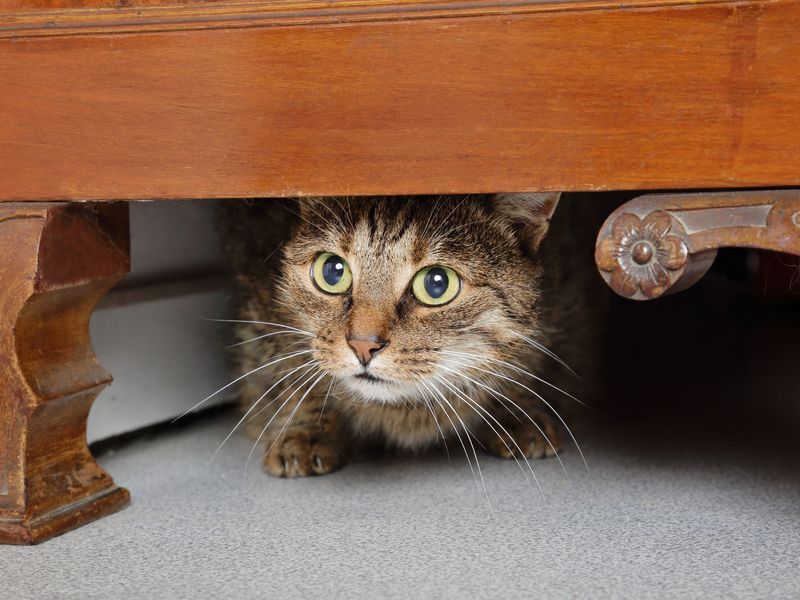
Loud noises like vacuums or sudden bangs can be terrifying for cats. They have sensitive hearing and can associate these sounds with danger.
Creating a quiet and peaceful environment will help your cat feel secure. If loud noises are unavoidable, try to introduce them gradually.
Training them to associate noises with positive experiences, like treats, can also build their confidence around such sounds.
Inconsistent Feeding Schedules

Cats thrive on routine, and inconsistent feeding schedules can cause them stress and anxiety. They rely on you for regular meals.
Establishing a consistent feeding routine builds trust, as your cat knows when to expect food. This predictability offers them comfort.
Consider using an automatic feeder to maintain a schedule, especially if your work hours are irregular.
Ignoring Health Issues

Cats often hide their pain or discomfort. Ignoring signs of health issues, like excessive shedding or lethargy, can break their trust.
Regular vet check-ups are vital. Addressing health concerns promptly shows that you care for their well-being.
Pay attention to any changes in behavior or appearance, as they may indicate underlying health problems.
Punishing Instead of Redirecting
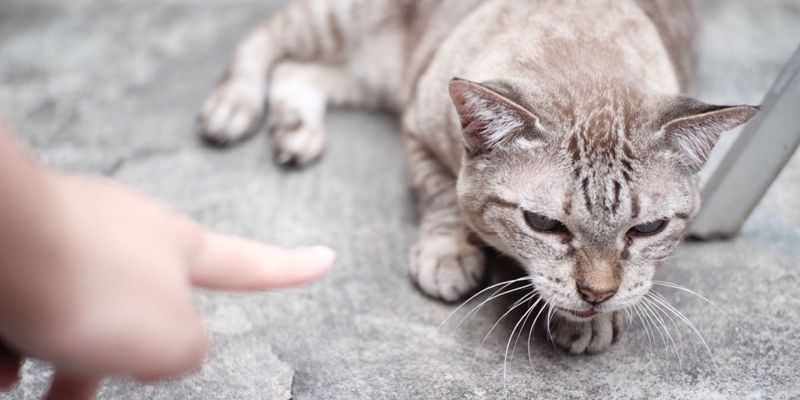
Punishment can lead to fear and insecurity in cats. Instead of harsh discipline, redirect their behavior with engaging toys or activities.
This approach encourages them to explore without fear of negative repercussions. Positive reinforcement fosters a trusting relationship.
Understanding why your cat acts out can also prevent future incidents by addressing the root cause.
Too Much Alone Time

Cats, like any pet, need companionship. Leaving them alone for extended periods can lead to loneliness and mistrust.
Ensuring they have engaging toys or even a second pet can alleviate boredom. Spending quality time with them upon your return helps maintain your bond.
Consider pet sitters or friends to check in if you’re away for long durations.
Switching Litter Brands Frequently
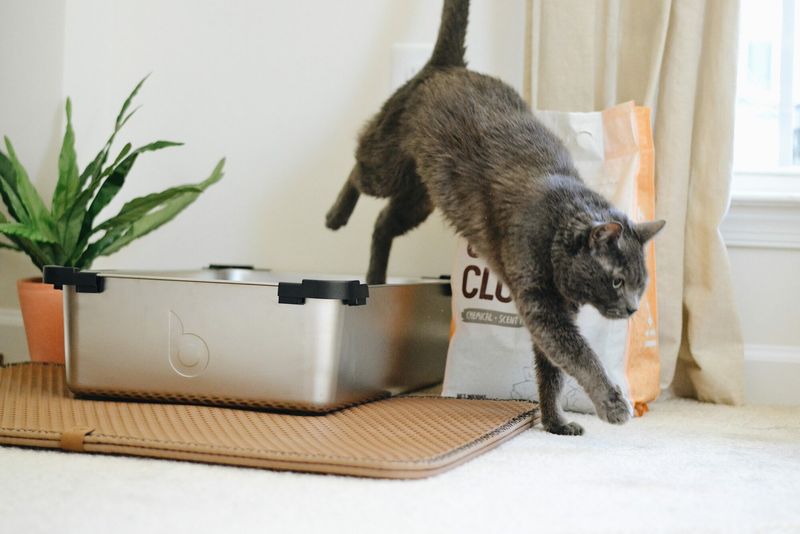
Frequent changes in litter brands can confuse and upset your cat. They are sensitive to smell and texture.
Consistency in their litter box routine is crucial. Sudden changes can cause them to avoid using the box altogether.
If a switch is necessary, introduce the new brand gradually by mixing it with the old one.
Not Providing Enough Enrichment
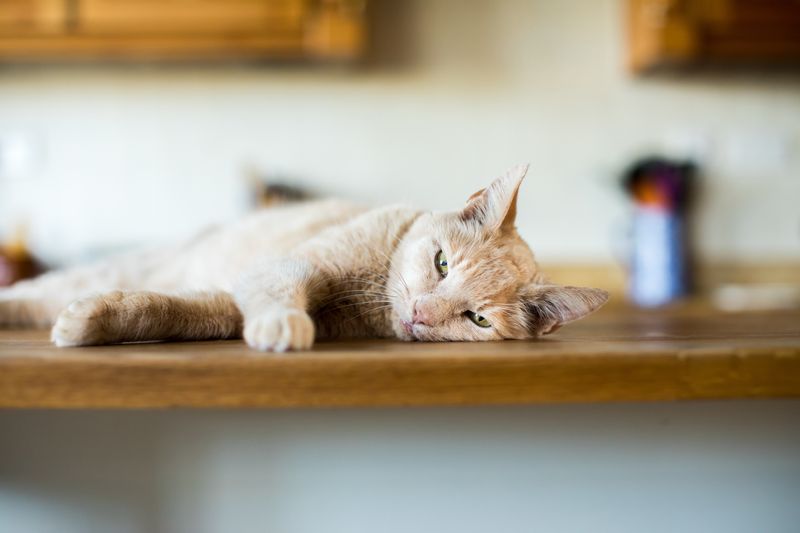
Cats need mental stimulation to stay happy. A lack of enrichment can lead to boredom and destructive behavior.
Offering various toys, climbing trees, and interaction keeps their minds active. Enriching their environment strengthens your bond.
Consider rotating toys to keep things exciting and prevent monotony. This engagement is vital for a healthy cat-owner relationship.
Forcing Interactions with Strangers
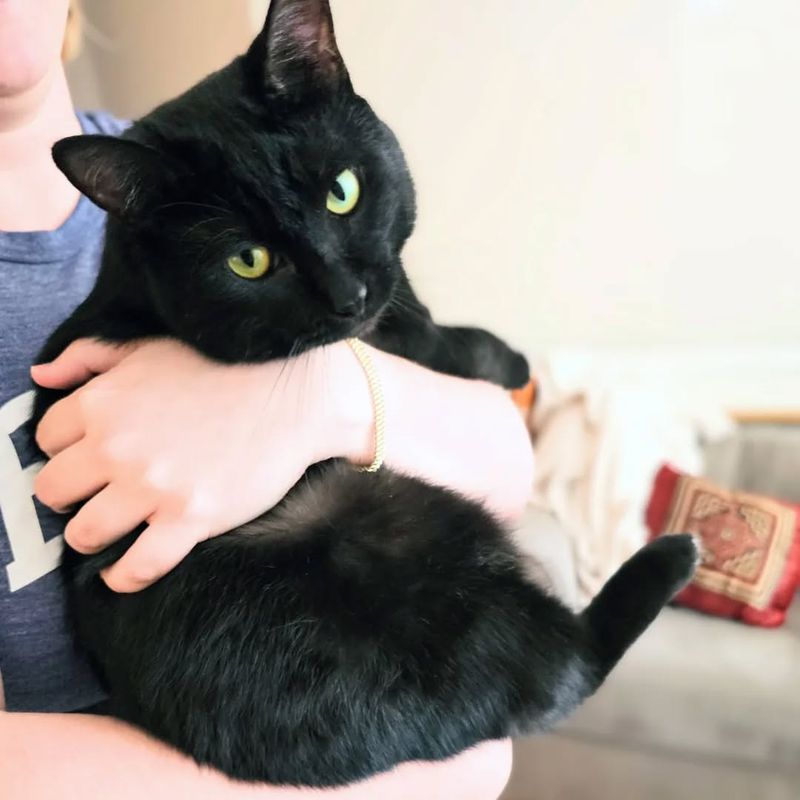
Cats can be wary of strangers. Forcing interactions can make them anxious and untrusting.
Allow your cat to approach new people at their own pace. This gradual introduction helps them feel secure.
Providing a safe space for them to retreat to reassures them when they feel overwhelmed.
Overhandling During Grooming
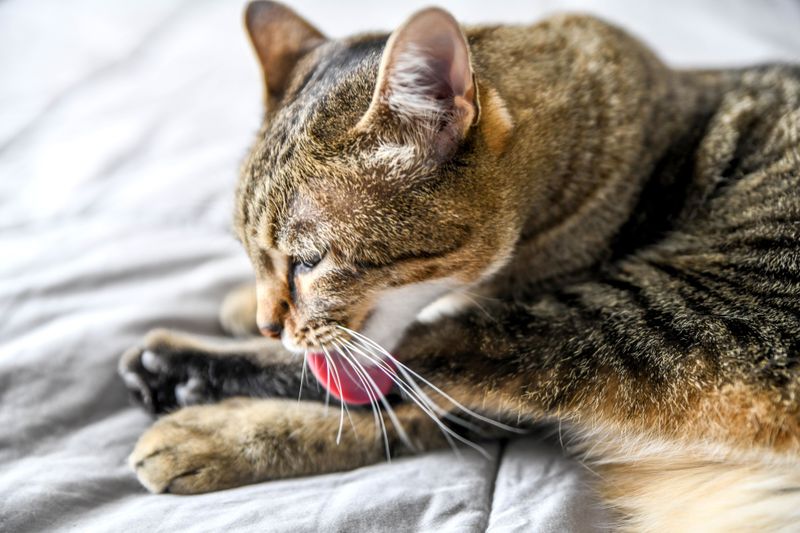
Grooming is essential, but overhandling can be distressing. Gentle and patient grooming sessions foster trust.
Pay attention to your cat’s comfort levels and stop if they seem stressed. Positive reinforcement can make grooming a pleasant experience.
Introducing grooming gradually helps your cat adapt without anxiety.
Ignoring Tailor Body Language

Cats communicate a lot through their tail and body language. Ignoring these signals can lead to misunderstandings.
Learning to read your cat’s cues helps you respond appropriately to their needs. This understanding reinforces trust.
Pay attention to signs of discomfort or affection to strengthen your relationship.
Feeding Inappropriate Foods

Feeding cats inappropriate foods can harm their health and break trust. They rely on you for safe nutrition.
Understanding what foods are toxic or unhealthy is crucial. Sticking to a cat-specific diet keeps them healthy and content.
Consult a vet for dietary advice and avoid sharing human food with your feline friend.
Not Providing Safe Hiding Spaces
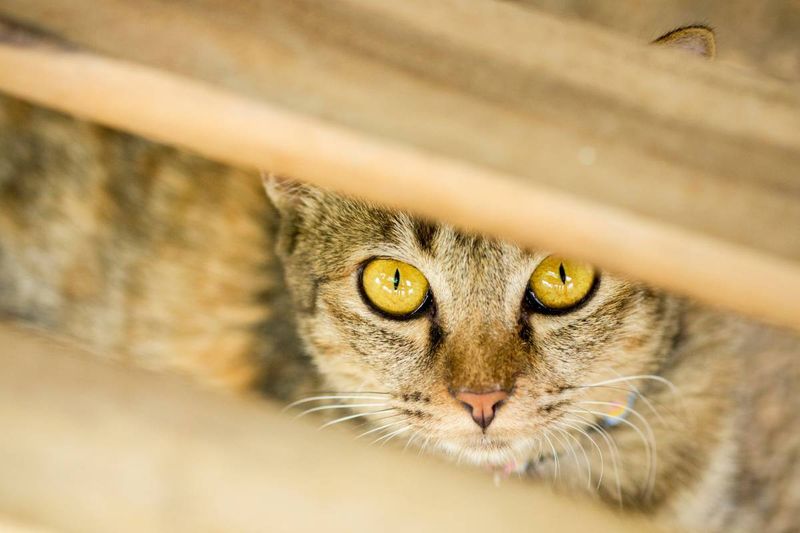
Cats need safe hiding spots to feel secure. A lack of these spaces can make them anxious and wary.
Ensure there are quiet, accessible areas where your cat can retreat when they feel stressed. This provision is an expression of care.
Your cat will trust you more if they feel they have control over their environment.
Fighting in Front of Them
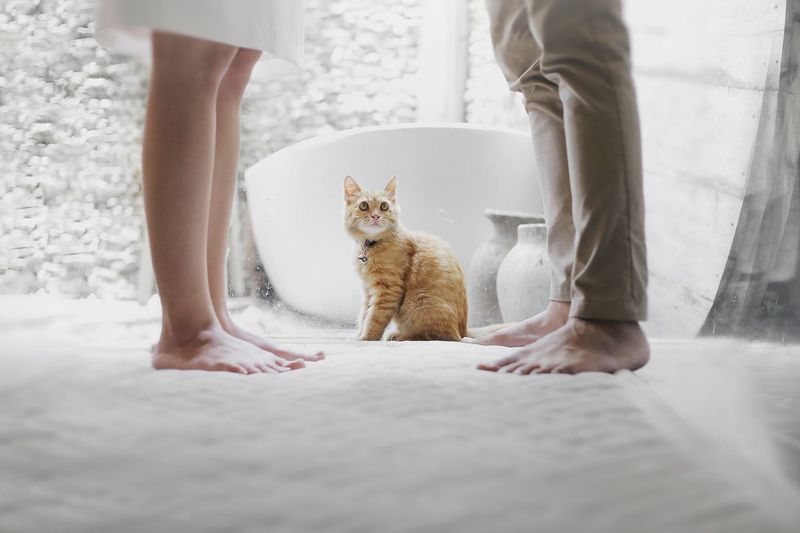
Cats are sensitive to tension and conflict. Fighting in front of them can cause stress and erode trust.
Maintaining a calm household atmosphere reassures your cat. If arguments arise, try to resolve them away from your pet.
Creating a peaceful environment contributes to a happy and trusting relationship.

